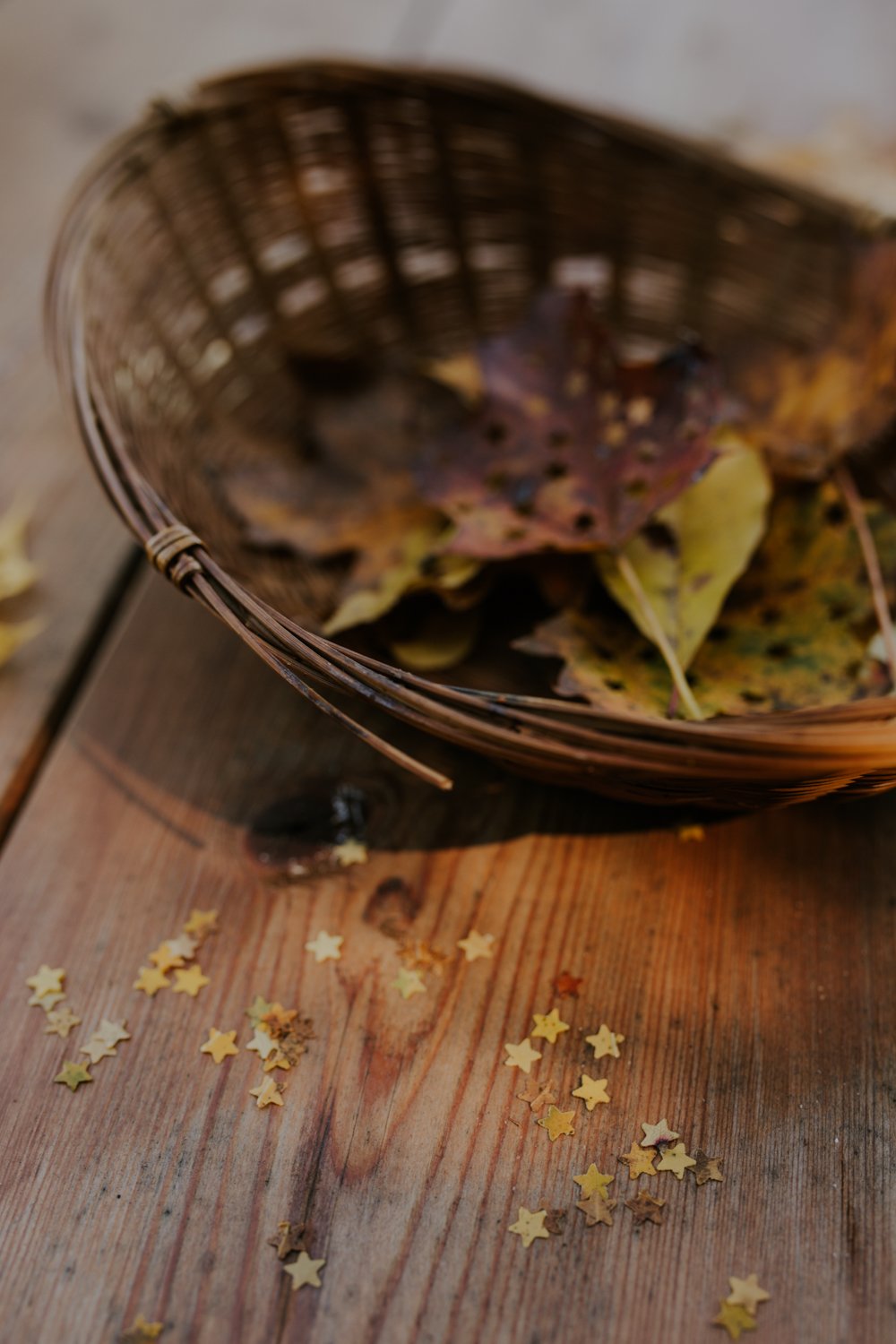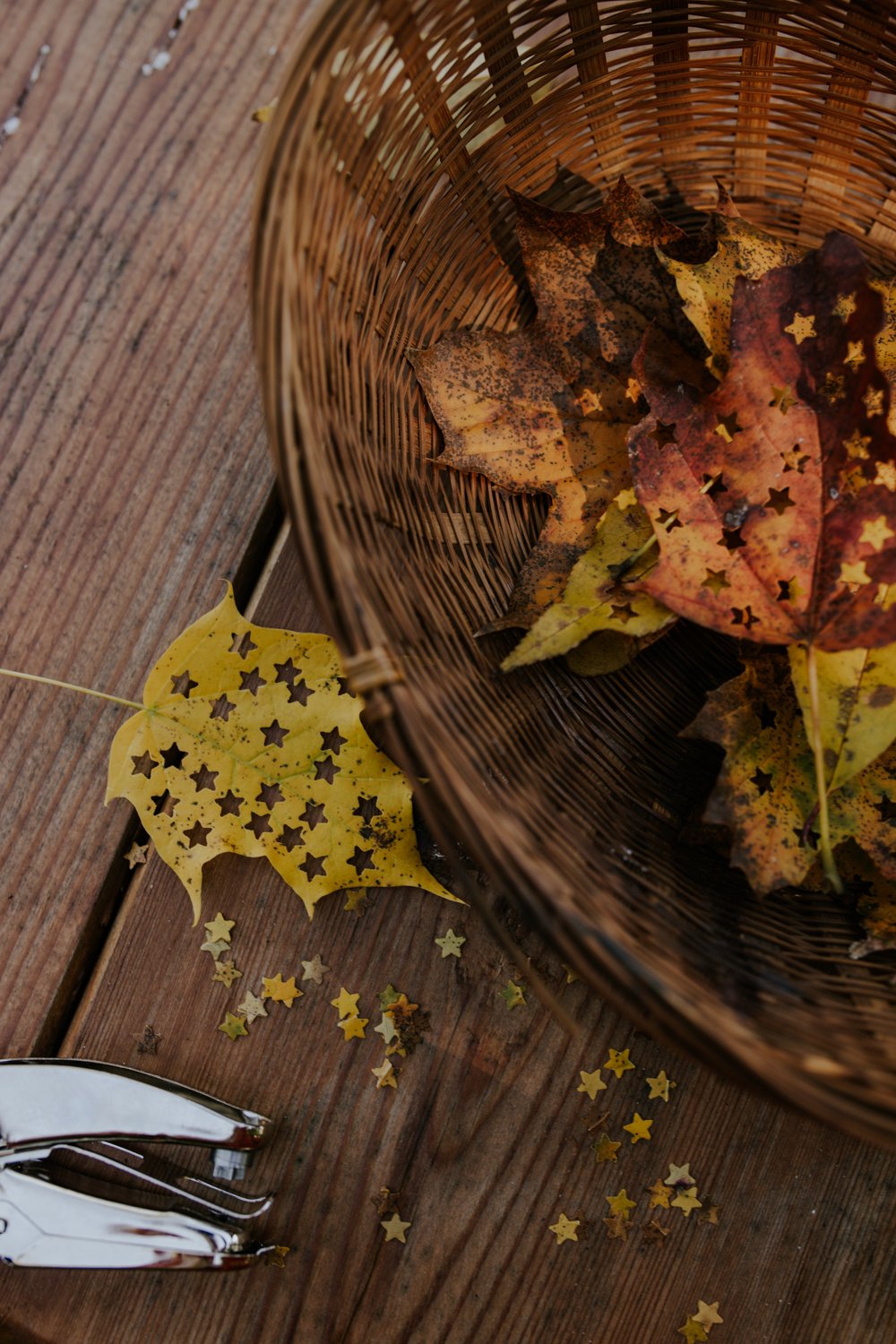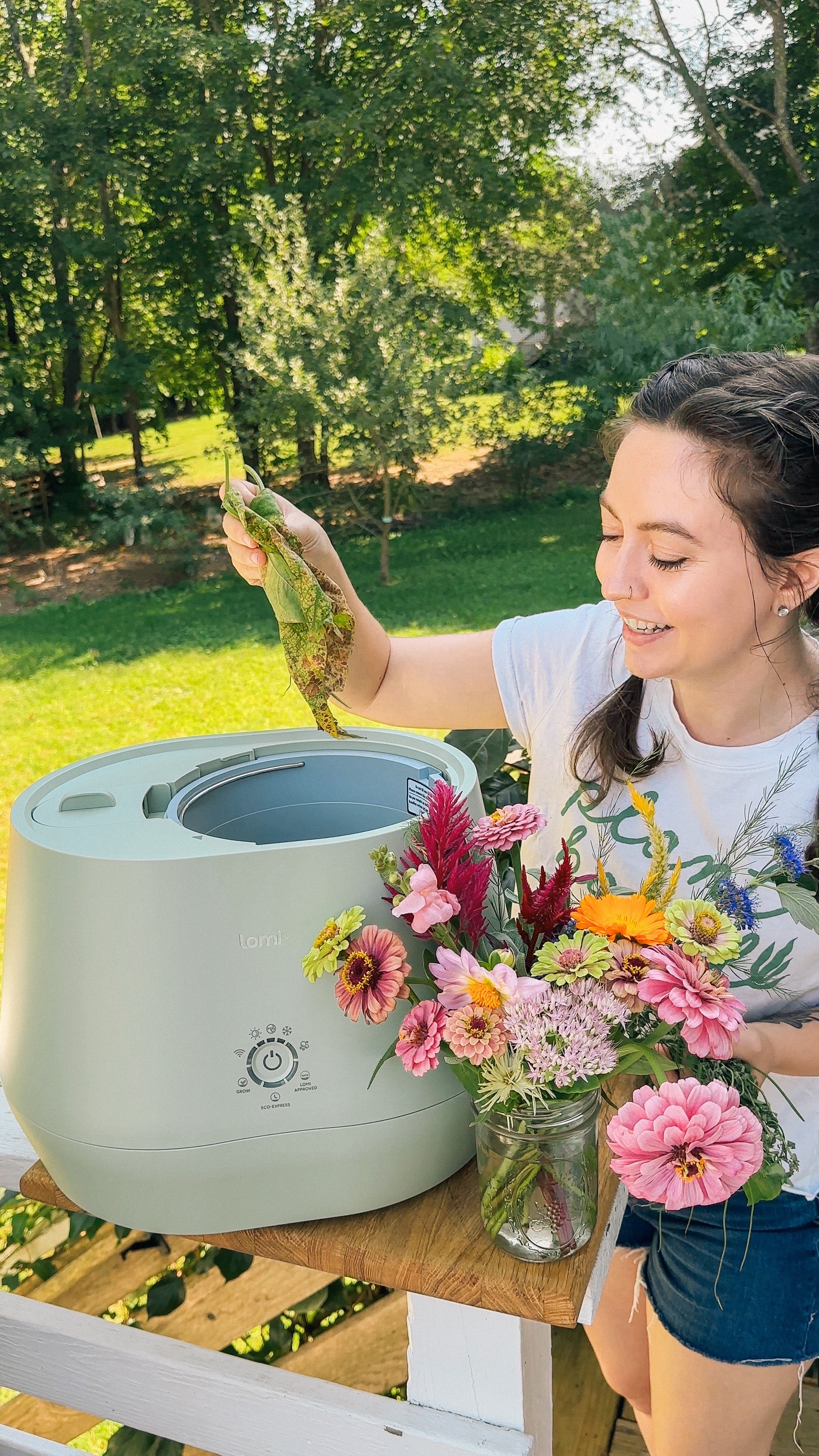DIY Biodegradable Leaf Confetti Craft Project
The Cottage Peach is reader-supported. When you purchase through links on our site, we may earn an affiliate commission at no additional cost to you. All opinions are our own.
I'm so glad I live in a world where there are Octobers.”― L. M. Montgomery, Anne of Green Gables
October in New England is always a special time. I don’t take for granted that we have easy access to the premiere fall leaf peeping destinations in the entire country, with the Berkshires in Massachusetts, and the White Mountains of New Hampshire nearby. While the first fallen leaf is met with a small sense of panic, soon I find myself easing into the simple, predictable rhythm of fall and smiling with each elm, oak and maple leaf I see. The maple leaves, with their bright and bold hues of yellow, orange and red, are my favorites. Although, to be honest it’s not one singular leaf that calls to me but the copious amounts of leaves as a whole, listing about as they fall through the cool autumn air and accumulate in crunchy, delicious smelling piles in every corner of the land. We are lucky to be surrounded by healthy deciduous trees on all sides, and each autumn season I look forward to counting them fall to the ground. I pick them up distractedly on my walks, feeling the endless ridges of the veins beneath my fingertips - a plastic free, all nature fidget toy if you will.
The sound of each crunch underfoot is a reminder that nothing lasts, tomorrow is not promised and summer has reached its end. That all things return to the earth, and only belong to us for a short while. I will miss the greenery dotting each branch and limb as winter draws closer and bare branches dominate the landscape. But all things must be born anew in the spring, and without the falling leaves, this would not happen as it should. If the leaves never left the trees, we would take them for granted all summer long instead of appreciating their friendly shade and whispers in the breeze.
And what about the vivid memories of the sound of leaves being raked into a mountainous leaf pile by a grown up for you to pounce in and bury yourself and breathe deeply of the decomposing earth as a child? I can’t think of a more calming memory than the hush that fell over me with my small body tucked in among the maples and elm and oak. I remember a sense of wonder that I could now touch something which had lived fifteen or twenty or thirty feet above my head all summer, an impossible distance overcome by mere gravity. If I could sleep in that childhood leaf pile made for me with love, I would.
Why You Should Leave Leaves
Perhaps my neighbors shake their heads at our laziness (although I think not, we have great neighbors) when they notice that we do not rake our leaves into those large paper hardware store bags and remove them each fall. A green lawn may be nice for some, but what fallen leaves can do for the earth and the insects that inhabit it is even better. So we choose to intentionally leave the leaves overwinter - you’ll find that they break down quite readily by spring time, and in the meantime offer a whole host of invisible benefits you may not be aware of. The cycle of leaves is an important part of nature’s ecosystem, here’s why:
Helps suppress weeds - many weeds make their start in very early spring, before the plants you actually want to grow have a chance to establish themselves. Leaving your leaves creates a protective barrier that blocks sunlight which can slow the growth of unwanted plants.
Provides valuable nutrients - the soil is full of microorganisms which are essential for healthy plant growth, but microorganisms need to eat too! As leaves break down, they compost and return vital nutrients to the soil which are then taken up by these microorganisms and plants to help them grow.
Protects overwinter insects - have you ever wondered where all those creepy crawly insects invading your personal space all summer go during the colder months? Well, it’s safe to say a fair number of them are hiding out in the local leaf pile, hunkered down and waiting for warmer days. Without dry and warm habitats like leaf piles, many insects have no place to safely weather cold winter conditions. Leaves also offer food, shelter, nesting and bedding materials to a variety of wildlife. When we disturb these micro insect ecosystems, it can have many unintended consequences for the environment.
Insulates trees, shrubs and other plants - especially in colder climates, winter can cause real damage to your trees, shrubs and other plants which aren’t as cold hardy. A freeze can cause instant plant death or shock that can severely impact growth and productivity of your plants. Leaves provide a natural blanket which protects these plants from the elements.
All this to say, I have a lot of feelings about leaves! My favorite thing to do during the fall season is to find different ways to celebrate this transitionary season through leaves. Although leaves can feel like a celebration all on their own as they sprinkle down from above, I love a good DIY craft project, so I wanted to take it one step further and create some DIY biodegradable leaf confetti!
Confetti is so fun and great for celebrations like baby showers, engagements, weddings and birthdays, but more often than not it is made of shiny plastics and other materials that do not break down after they are thrown away. Not to mention the packaging involved. Biodegradable confetti allows you to have all the fun of regular confetti without the negative environmental impact, so you can enjoy your celebration without any guilt.
Now, you can probably figure out that there are two ways to go about doing this - one would be to just literally gather a basket of whole, small leaves and sprinkle them as you see fit. And that totally works as ready made confetti, or a delightful prank to pull on someone that’s not quite so messy as a pie to the face. But this is a celebration right?! So let’s make it extra special with a confetti diy using different shapes created with a paper hole punch.
For this project I grabbed a heart and star shaped hole punch, but any shape will do - circles, stars, even a tiny leaf would be so cute! They make all different sizes of hole punches, you could use a larger hole punch that is normally used for scrapbooking too. Here are a few options for hole punches that should work well for this project if you don’t have one already:
You’re going to want to collect your leaves first. Make sure to select leaves with the brightest colors that are flat and fully dried without being crumpled or so crispy that they just fall apart in your hand. If you’re unsure which leaves will work best, grab a few different ones before you really get started collecting and just test them out with your hole punch. The hole punch should be able to cut through them quickly and easily without breaking the leaf - just like paper.
Once you have a good amount of leaves filling your basket, find a nice spot to sit and get punching. This can be a really great mindfulness opportunity. Pay close attention to the sensation of the leaves in your hands, the sound of the hole punch snapping shut and opening, the smell of earth wafting up from the basket and the feel of the confetti in your hand. Who would have thought this simple confetti craft could have so many benefits?
After you’re finished creating your confetti, you can even create a simple paper cone to help you to toss your new confetti in the air! I like to do this by cutting a circle shape out of paper and then cutting a pie shaped wedge out of the circle before wrapping it in on itself and securing with washi tape. Fill up your paper cone and get ready to celebrate!
How to make biodegradable confetti instructions
Supplies:
Leaves, flat and dry with bright colors
A basket or some other kind of container for collecting the leaves
A large metal scrapbooking hole punch (½-2” wide)
One sheet of paper
Washi tape
Instructions:
Collect leaves in a basket. Look for leaves that are flat and dry with bright colors. Working around each leaf from the outside edges in, use your hole punch to punch out confetti shapes from the leaves until you run out of usable leaf. Continue punching out the confetti from the leaves until you have enough confetti to fill a cone (about one cup). For the paper cone, cut a large circle out of the piece of paper. Then, cut a pie shaped wedge out of the circle. Wrap the circle around itself to form a cone shape and secure it with washi tape. Fill the cone with the biodegradable leaf confetti and enjoy!









